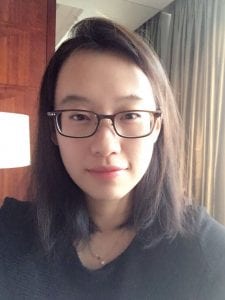
Pace University PhD in Computer Science candidate Sukun “Luna” Li was awarded “Best Presenter” at the 2019 International Conference on Pattern Recognition and Intelligent Systems, which took place March 22-24 in Shanghai, China.
This conference discussed artificial intelligence, pattern recognition, and deep learning. Comprised of two sections – oral presentations and a poster session – the conference brings experts from around the world to present their research and share their discoveries. Luna was invited to give an oral presentation of her PhD research paper, titled “Feature Extraction Method of EEG based Biometrics”, and after giving an excellent presentation, was given the best presenter award.
Luna attributes her achievement to good advice and plenty of practice: “I think the reason I received the award because my research advisor, Dr. Sung-Hyuk Cha, told me a PhD student should not only be good at writing a paper, but also should spend more time on presentation. One of his requirements for me is presenting my research paper with passion and appeal, and I practice as much as I can,” she said.
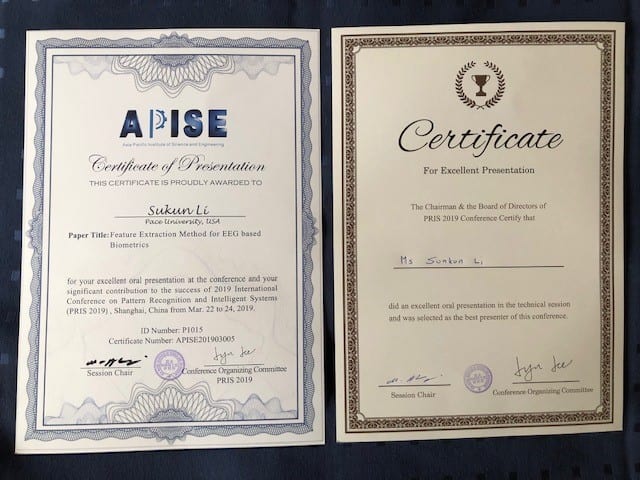
Luna’s paper will go on to be published in the Conference Proceeding, which will be indexed by databases including Thomson Reuters, Inspec, El Compendex, and more.
“I am a very shy person on public speaking, especially for English (my second language),” Luna added. “But our school, Seidenberg, gave me a lot of chances to speak in public places, like the Finland and Austria trips for NYC design factory.”
Dr. Jonathan Hill, Dean of the Seidenberg School of Computer Science and Information Systems at Pace University, said: “Luna’s achievement is testament to her talent and dedication as a student of Computer Science and a practitioner of Design Thinking. Her research work is incredibly detailed and she has developed truly stellar presentation skills with which to describe her work. Luna is a hard worker and is always willing to go the extra mile. She is a fine representative of the Seidenberg School and one we are very proud of having in our PhD program.”
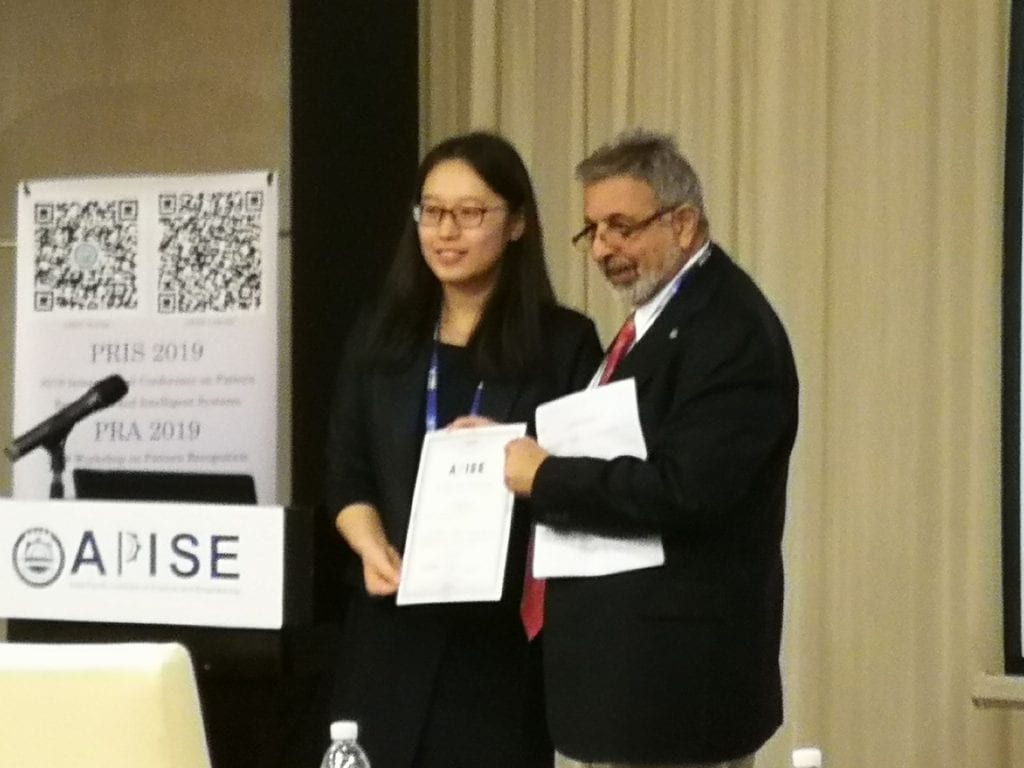


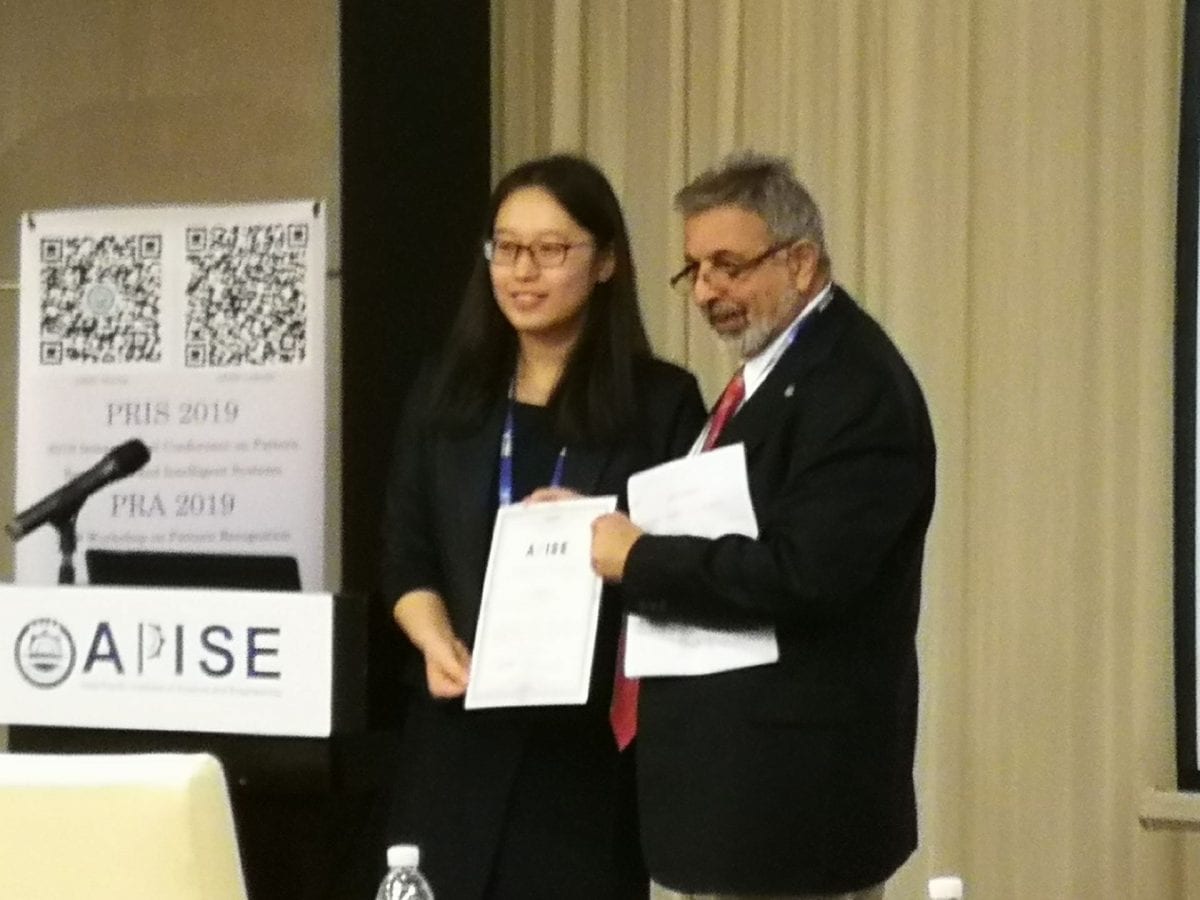
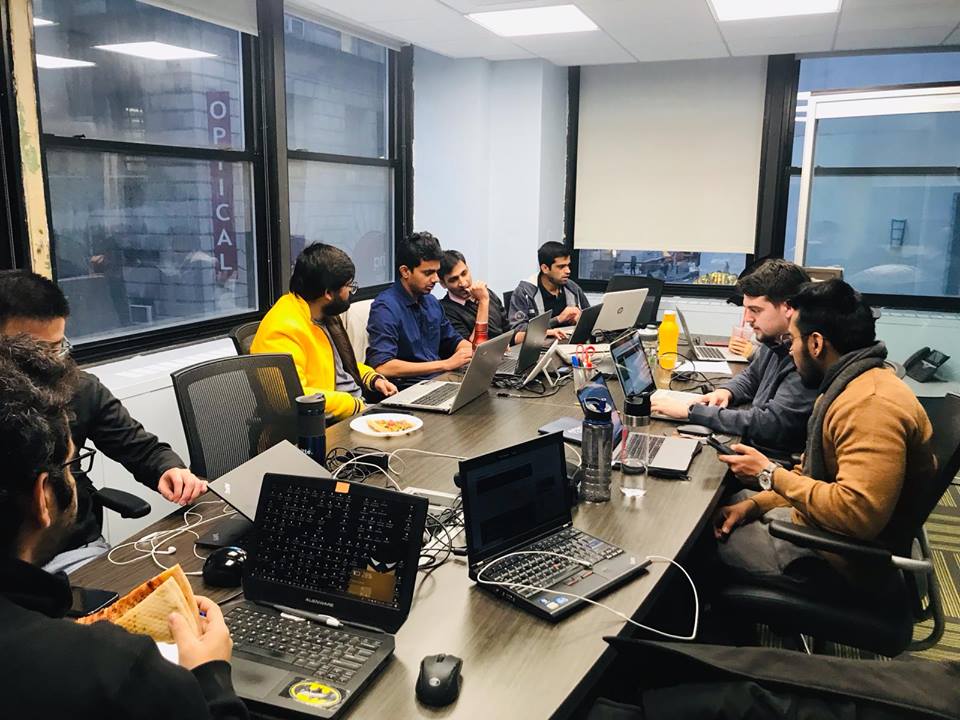





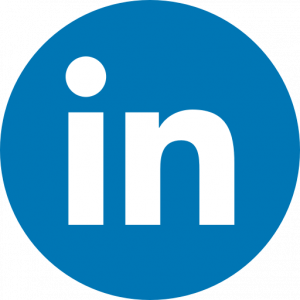
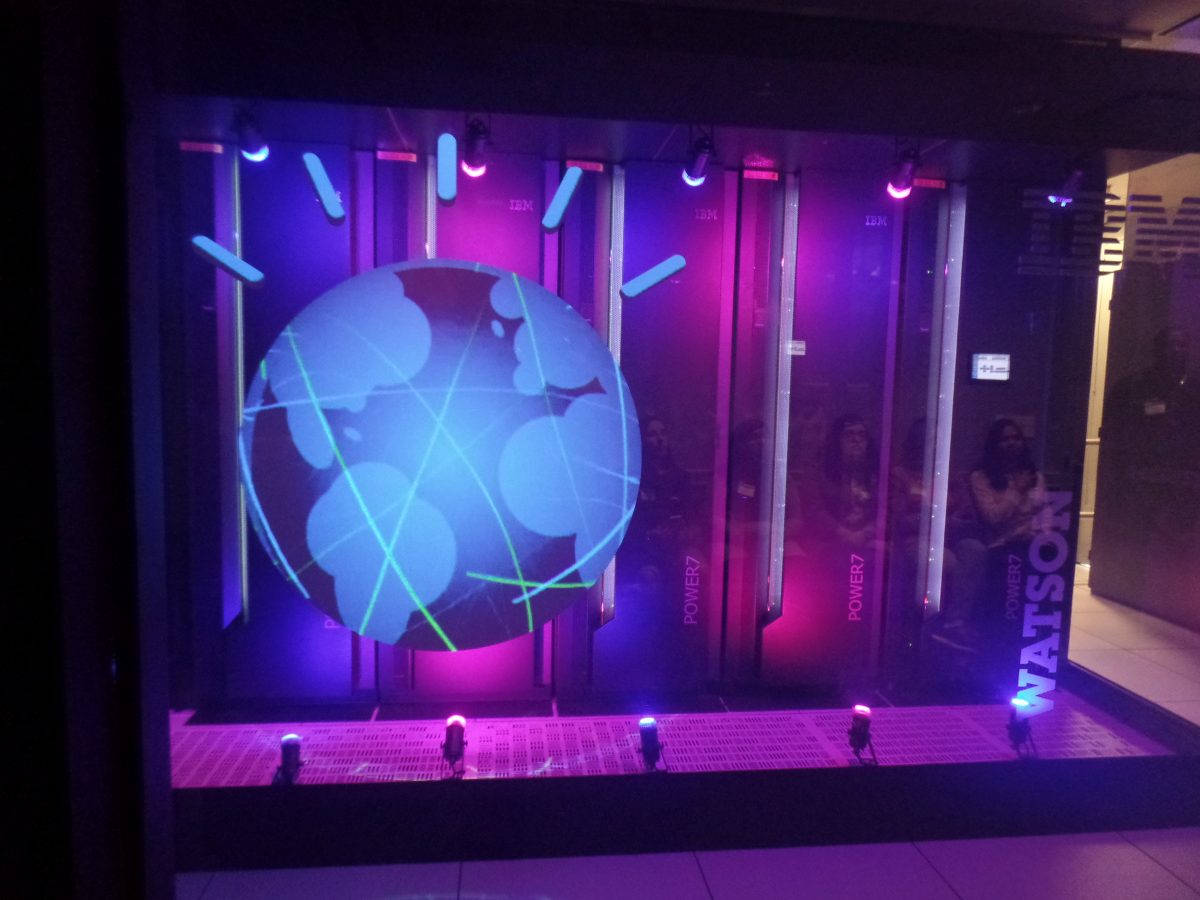
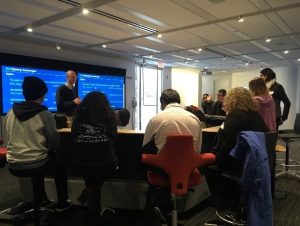 The tour began with the history of the facility, the key problems researchers are currently working on, and an introduction to the Watson computer. To add to the excitement, this presentation was delivered on a multi-screen viewing system guided by a sensor-based wand, which was inspired by the touch-screen interface used by Tom Cruise in the sci-fi film
The tour began with the history of the facility, the key problems researchers are currently working on, and an introduction to the Watson computer. To add to the excitement, this presentation was delivered on a multi-screen viewing system guided by a sensor-based wand, which was inspired by the touch-screen interface used by Tom Cruise in the sci-fi film  We then learned about how Watson and its artificial intelligence capabilities were developed, including the various ways Watson technology has been applied, from developing treatment plans for oncology patients to creating satiable recipes independently, and even how it was able to beat the two greatest Jeopardy! champs in existence in a televised
We then learned about how Watson and its artificial intelligence capabilities were developed, including the various ways Watson technology has been applied, from developing treatment plans for oncology patients to creating satiable recipes independently, and even how it was able to beat the two greatest Jeopardy! champs in existence in a televised 